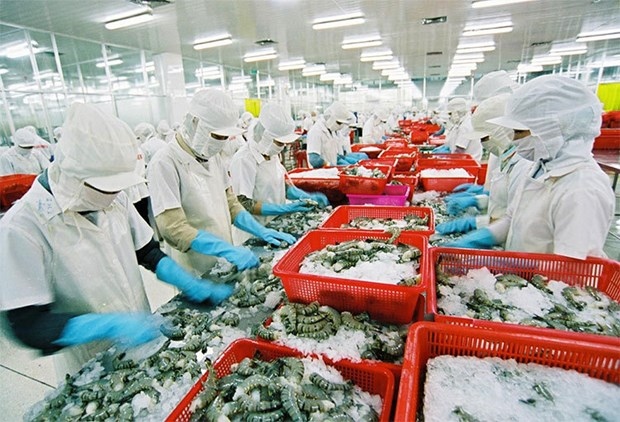More investment needed in agriculture logistics services
Logistics services are driving up added values of the domestic agriculture sector which has been developing quickly over the past years with an annual growth rate of 14-16%.
According to the Ministry of Industry and Trade (MoIT), apart from seaports and airports, Vietnam is home to 10 inland ports and 18 inland container depots (ICDs), which serve as logistics centres, mainly in big cities and border localities like Hai Phong, Hanoi, Quang Ninh, Lao Cai, Ho Chi Minh City, Dong Nai and Binh Duong.
In addition, cold supply chains have been established to facilitate the transport and storage of agricultural materials.
Thanks to such logistics services, more than 130 million tonnes of agricultural products are transported and circulated each year. Of which, tens of millions of tonnes are shipped to more than 185 countries and territories worldwide.
Over the past years, Vietnam’s agro-forestry-aquatic product exports have increased constantly, hitting a record of over US$53 billion last year from US$48.6 billion in 2021. The value is projected to reach US$55 billion this year.
Nguyen Nam Phuong Thao, Sales Director of Hoang Phat Fruit Co., Ltd, said after the COVID-19 pandemic, importers and exporters have found it easier to access logistics services with dropping transport costs.
However, Nguyen Tu Uyen, General Director of CMU Logistics Transportation Services Co., pointed out weaknesses in the domestic logistics sector like a lack of cold storage facilities and limited capacity of logistics staff given the increasing volume of Vietnamese imports and exports.
A study by the World Bank (WB) showed that logistics costs in Vietnam account for nearly 21% of Vietnam’s GDP, higher than most of countries in the Association of Southeast Asian Nations (ASEAN), which affects the competitiveness of exports and adds to the costs of goods for producers and consumers.
Tran Thanh Hai, Deputy Director of the MoIT’s Foreign Trade Agency, said the number of logistics firms in Vietnam remains limited, with a lack of experience and a small scale in terms of both capital and workforce.
Notably, domestic logistics firms have yet to form fourth-party logistics, also known as 4PL, an operational model in which a business outsources its entire supply chain management and logistics to one external service provider, due to their lax linkage.
Therefore, importers and exporters are under the pressure of fee hikes, and Vietnamese goods are losing their competitiveness. Meanwhile, logistics providers are struggling to reach the international market, experts said.

